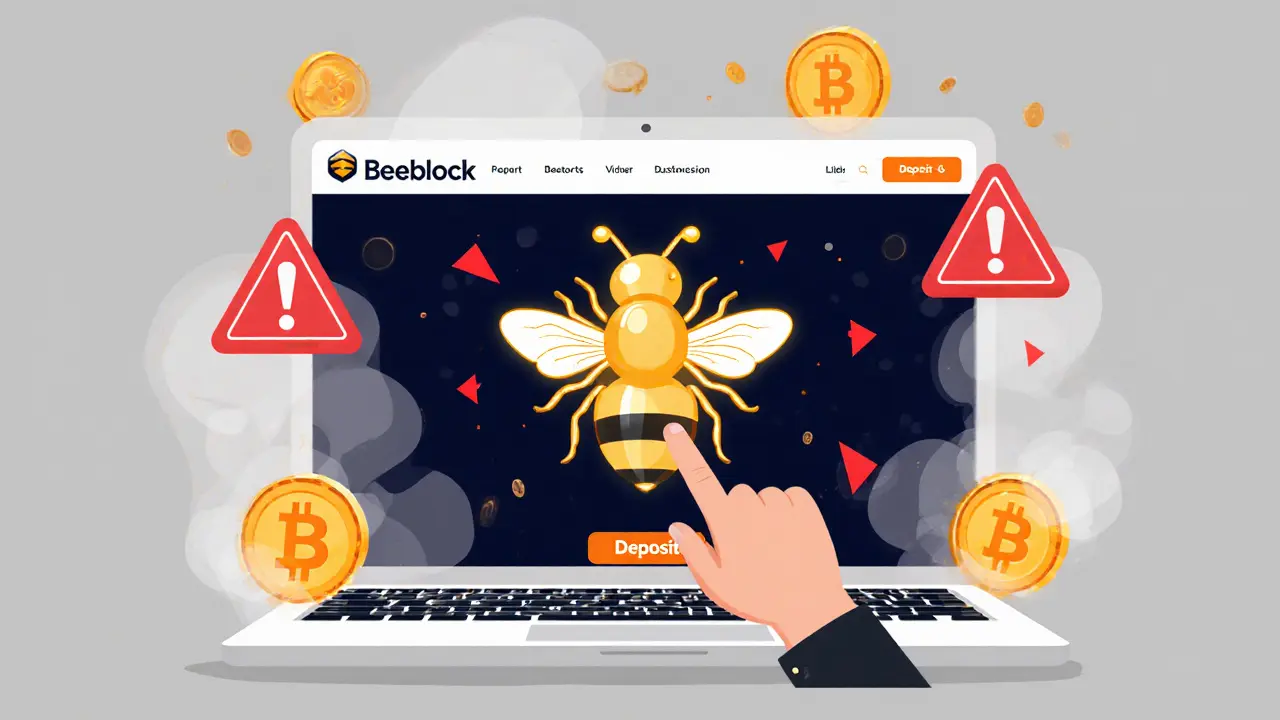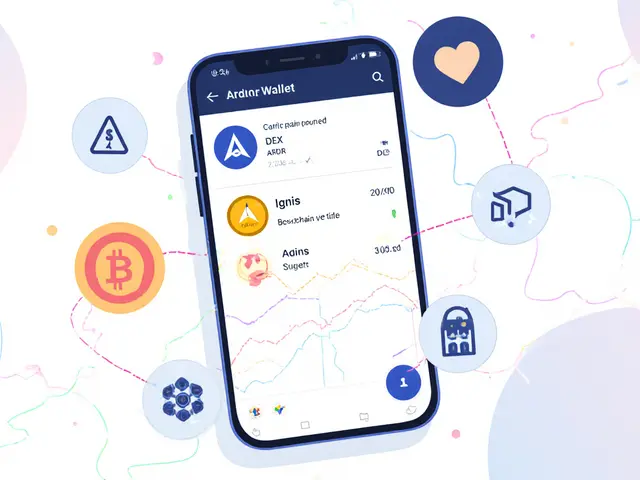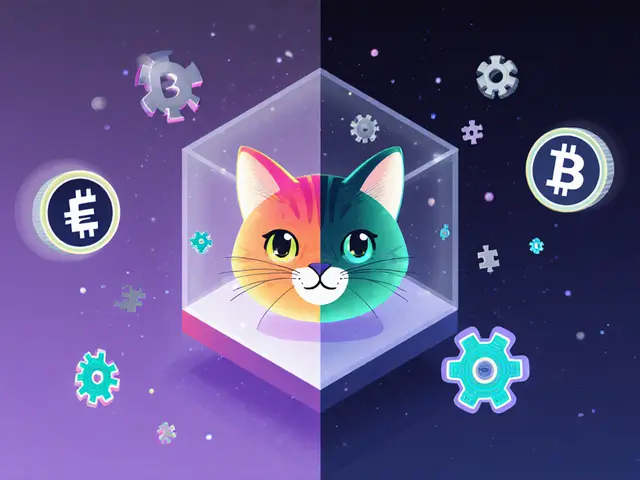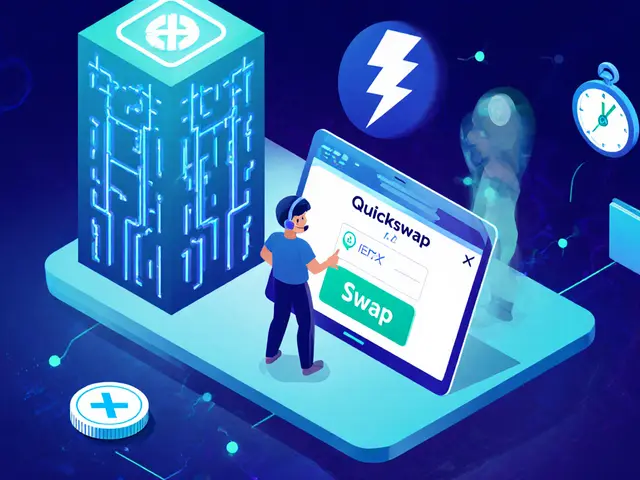Crypto Exchange Scam Checker
Is This Exchange Legitimate?
Check any crypto exchange name or URL to see if it meets industry standards for legitimacy.
Verification Checklist:
- Regulatory compliance: Verified
- Proof of reserves: Verified
- Cold storage: Verified
- Insurance coverage: Verified
- Customer support: Verified
- Physical address: Verified
There’s no such thing as Beeblock as a crypto exchange - not now, not last year, and not in any credible database you can check. If you’ve seen ads, YouTube videos, or Telegram groups pushing "Beeblock" as the next big thing in crypto trading, you’re being targeted by a scam. This isn’t a review of a new platform. It’s a warning.
Why You Won’t Find Beeblock Anywhere
Try searching for Beeblock on CoinGecko, CoinMarketCap, or even the official websites of major regulators like the SEC or FCA. Nothing. Not a listing. Not a license. Not a single verified user review on Trustpilot or Reddit. The entire crypto industry - from exchanges to security firms to blockchain analysts - keeps detailed public records of every active platform. Beeblock doesn’t appear in any of them.The name might sound plausible. "Block" is everywhere in crypto. "Bee" could be a nod to Binance’s branding or even Beeple, the digital artist. But names don’t make exchanges real. Legit platforms are visible, traceable, and accountable. They publish proof-of-reserves. They list their regulatory status. They have customer support teams that answer emails. Beeblock has none of that.
How Scammers Use Fake Exchange Names
Scammers don’t build fake exchanges to trade crypto. They build them to steal your money. Here’s how it works:- You click an ad promising "low fees" and "instant withdrawals" on Beeblock.
- You sign up with your email and phone number - sometimes even your ID.
- You deposit crypto, thinking you’re buying Bitcoin or Ethereum on a new platform.
- Within minutes, your funds disappear. The site goes dark. The support chat vanishes.
This exact pattern happened with Bitblock in 2021. It vanished after stealing over $12 million. The name "Beeblock" is just a rebrand - a new mask for the same old trick.
According to Chainalysis’ 2025 Crypto Crime Report, over 40% of all crypto thefts in 2024 came from fake exchanges and phishing sites. These scams don’t need to be sophisticated. They just need to look convincing. And they do - with fake testimonials, stock photos of "teams," and YouTube influencers paid to promote them.
What Legit Exchanges Do That Beeblock Can’t
If you’re looking for a real crypto exchange, here’s what you should expect:- Regulatory compliance: Coinbase is registered with the SEC. Kraken holds licenses in multiple U.S. states. Binance operates under strict oversight in the UAE and Singapore.
- Proof of reserves: Every major exchange publishes regular audits showing they hold enough assets to cover all user balances. Beeblock? No audit. No transparency.
- Cold storage: Top exchanges store 95% or more of user funds offline. Beeblock? No public info on how they store anything.
- Insurance: Gemini holds $350 million in crime insurance. Kraken and Coinbase have similar coverage. Beeblock doesn’t even claim to have any.
- Customer support: Real exchanges have live chat, email tickets, and response times under 24 hours. Beeblock’s "support" is a ghost.
These aren’t nice-to-haves. They’re survival requirements. If an exchange doesn’t meet at least three of these, it’s not safe. Beeblock meets zero.
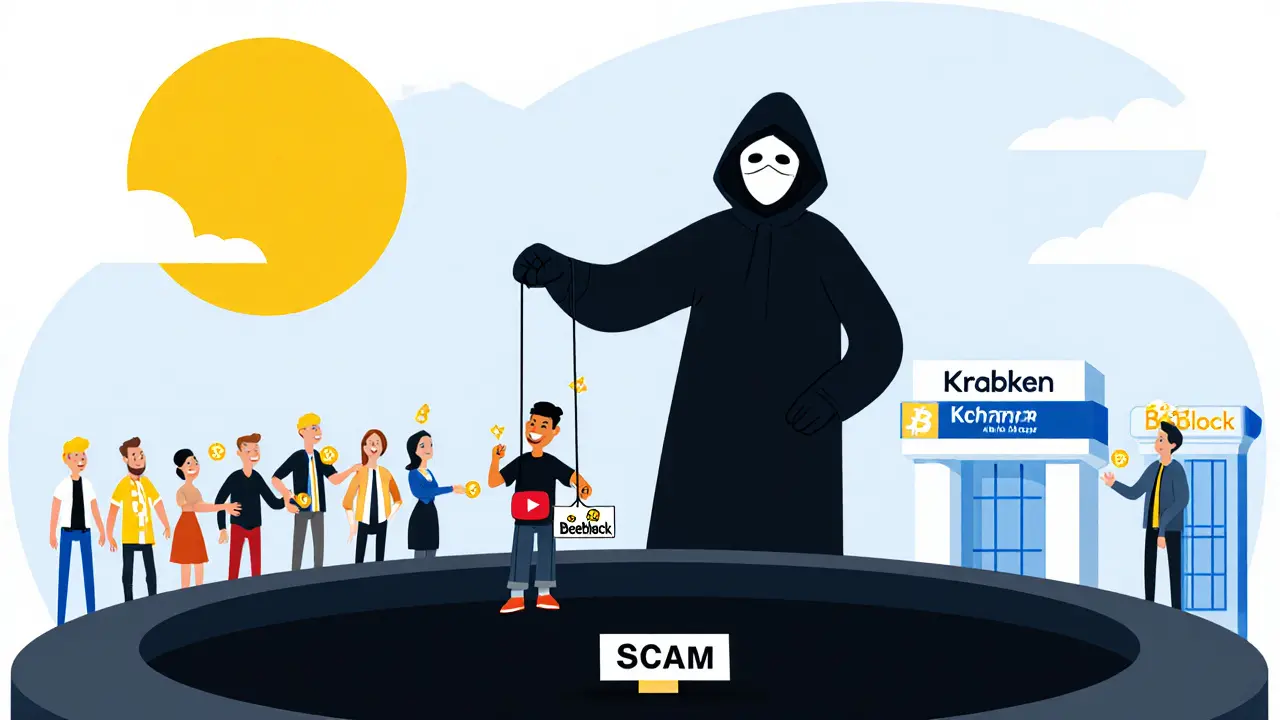
How to Spot a Fake Crypto Exchange
Here’s a quick checklist you can use right now:- Search the exchange name on CoinGecko or CoinMarketCap. If it’s not there, walk away.
- Check the domain. Fake exchanges often use .xyz, .io, or .site - not .com or .org.
- Look for a physical address. Legit exchanges list headquarters (e.g., Coinbase in San Francisco, Kraken in San Francisco). Beeblock? No address. No city. No country.
- Search Reddit or Trustpilot for reviews. If there are zero reviews, or only glowing ones with no detail, it’s a red flag.
- Check if they require KYC. Real exchanges do. Scammers avoid it - because they don’t want to be traced.
If you’ve already deposited funds into Beeblock, stop. Don’t send more. Don’t reply to "support" emails asking for your private keys. Save all screenshots and report the site to your local financial regulator. In Australia, that’s ASIC. In the U.S., it’s the FTC.
Real Alternatives to Beeblock (That Are Safe)
If you’re looking for a reliable place to trade crypto, here are five verified exchanges with strong track records as of October 2025:| Exchange | Regulated In | 24h Volume | Withdrawal Fees (BTC) | Insurance Coverage | 2FA Required |
|---|---|---|---|---|---|
| Coinbase | USA, EU, UK, Australia | $2.1B | 0.0005 BTC | $250M | Yes |
| Kraken | USA, Canada, EU | $1.8B | 0.0004 BTC | $200M | Yes |
| Binance | UAE, Singapore, Japan | $6.2T (Q3 2025) | 0.0005 BTC | Not public | Yes |
| Gemini | USA, EU | $1.2B | 0.0005 BTC | $350M | Yes |
| Bitstamp | EU, USA | $800M | 0.0004 BTC | $220M | Yes |
All of these exchanges have been operating for over a decade, have clear legal structures, and are regularly audited. None of them promise unrealistic returns. None of them disappear after you deposit.
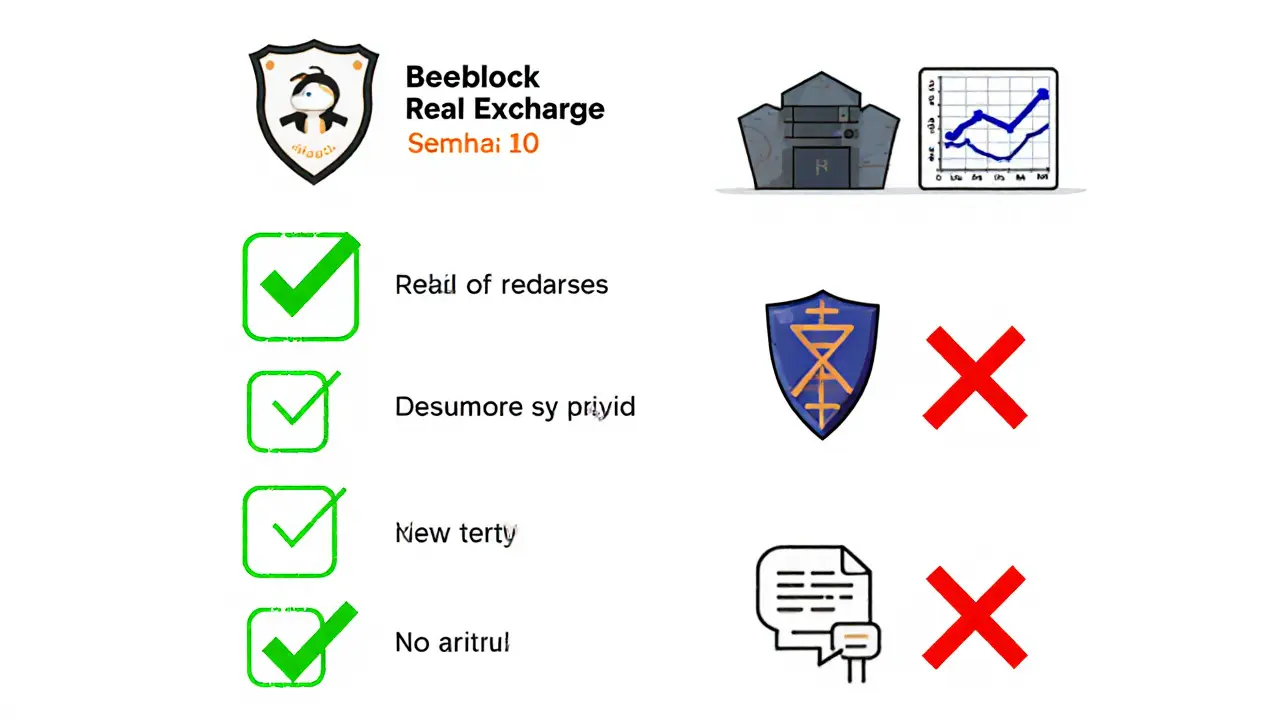
What to Do If You’ve Been Scammed
If you sent crypto to Beeblock or any other fake exchange:- Do not panic. Scammers rely on fear to make you send more money.
- Stop all communication. Never give out your seed phrase or private keys to anyone.
- Document everything. Save screenshots of the website, transaction IDs, emails, and chat logs.
- Report it. File a report with your country’s financial crime unit. In Australia, go to ScamWatch. In the U.S., use the FTC’s report portal.
- Warn others. Post about it on Reddit, Twitter, or local crypto groups. Scammers thrive in silence.
Recovering stolen crypto is rare - but stopping others from falling for the same trap? That’s possible.
Final Word: Trust the Data, Not the Hype
Crypto is risky enough without adding fake exchanges to the mix. The market doesn’t need another "revolutionary" platform that doesn’t exist. It needs transparency, regulation, and accountability.Beeblock isn’t a new exchange. It’s a trap. And the only thing you should do with it is avoid it - completely.
Is Beeblock a real crypto exchange?
No, Beeblock is not a real crypto exchange. It does not appear on any major exchange directory like CoinGecko or CoinMarketCap, has no regulatory registration, and no verified user reviews. All evidence points to it being a scam.
Why can’t I find Beeblock on Google or Reddit?
Because it doesn’t exist as a legitimate platform. Any results you see are either scam ads, fake reviews, or misleading YouTube videos paid for by the operators. Legitimate exchanges are listed in public databases and covered by industry news outlets - Beeblock is not.
Could Beeblock be a new exchange that just launched?
Even if it were new, it would still need to be registered with financial authorities and appear in public databases within weeks. No such registration exists. Major exchanges like Binance and Coinbase were covered by media within days of launch. Beeblock has zero traceable footprint.
What should I do if I already sent crypto to Beeblock?
Stop sending more money. Do not respond to any "support" messages. Save all evidence - screenshots, transaction IDs, emails - and report it to your country’s financial crime agency. In Australia, report to ScamWatch. Recovery is unlikely, but reporting helps prevent others from being scammed.
Are there any safe alternatives to Beeblock?
Yes. Use established, regulated exchanges like Coinbase, Kraken, Binance, Gemini, or Bitstamp. These platforms have years of track records, public audits, insurance coverage, and customer support. Avoid any exchange that promises high returns with no verification.
